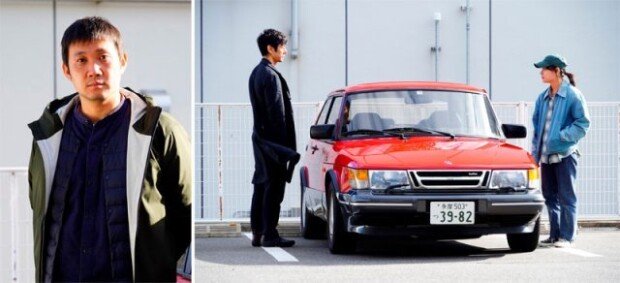Interview with director of the movie ‘Drive My Car’
Interview with director of the movie ‘Drive My Car’
Posted December. 17, 2021 07:53,
Updated December. 17, 2021 07:53

Kafuku (played by Nishisima Hidetoshi) finds out his wife is having an affair before she died for unknown reason. Two years later, Kafuku is invited to direct a play at a theatre festival in Hiroshima where he meets his driver Misaki (played by Miura Doko). The movie “Drive My Car” follows the journey of two people forming something of a relationship and recovering from their emotional scars. The movie won the Best Screenplay award at Cannes 2021 and has also made the Golden Globes nominee for the best non-English language film for next year.
On Thursday, The Dong-A Ilbo had a video interview with Director Ryusuke Hamaguchi before the release of his film in South Korea, which is scheduled on Dec. 23. Known for his previous works including “Happy Hour” (2015), “Asako” (2018), and “Wife of a Spy” (2020), Hamaguchi has become one of the youngest Japanese directors to win the hearts of global audience.
“Thanks to the award and acclaims, I could pay it back to those who worked so hard together,” he said. For his latest movie “Drive My Car,” he worked Korean actors and staff including actress Park Yoo-rim. “About 11 years ago, I co-produced the Depths with the Korean Academy of Film Arts,” the director said. “I found it very interesting that Japan and Korea, the two closest countries, have so many differences, and I was very excited to be able to work with Koreans once again.”
The movie is based upon the short story with the same title “Drive My Car” from a collection of short novels called “Men Without Women,” which was penned by Murakami Haruki and published in 2014. The producer proposed Haruki’s other short story for movie adaptation, but the director made a counter proposal, saying he feels more confident with “Drive My Car.” “Novels describe the inner side of characters while movies hinge upon their movements,” he explained. “I chose ‘Drive My Car’ because the movement of the car from the story can affect the behaviors of characters.”
In the end, the main character Kafuku faces his agony, confessing to having been hurt properly. It is an adaptation of the line from Haruki’s another short story “Gino” where the character says, “I was not hurt well enough when I should have been.” “Kafuku overestimated himself and his relationship with his wife. In accepting the truth that he was not as strong as he thought he was, he could finally realize the importance of other people,” the director said. “I thought that should be the starting point of forming any relationship with others.”
Silence is the main language for the driving scene, and various languages including Japanese, Korean, English and sign languages are heard during the theatre scene. The movie certainly shows that there is a story that can be shared without language or speech.
beborn@donga.com







